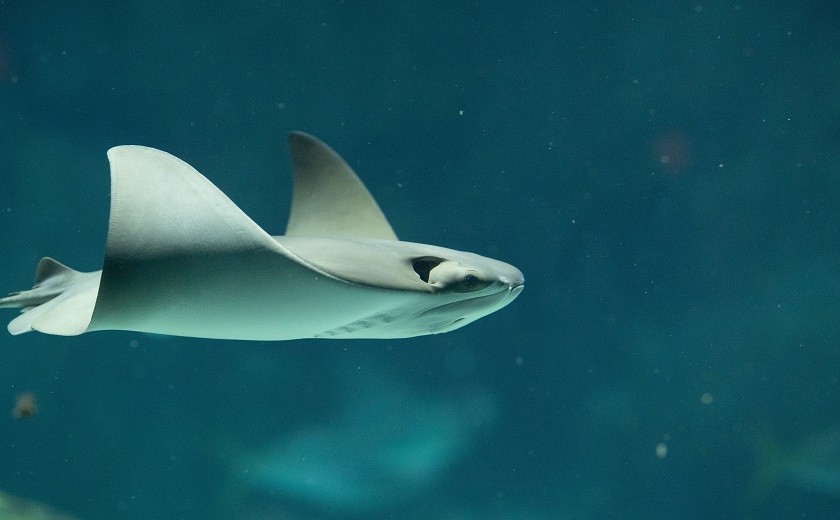Fish are a diverse group of aquatic creatures that inhabit a wide range of environments, from freshwater lakes and rivers to saltwater oceans. Their diets can vary significantly depending on their species, habitat, and life stage. Understanding what fish eat is essential for fish enthusiasts, anglers, aquarists, and conservationists. In this comprehensive article, we will explore the various types of fish diets, their feeding habits, and the factors that influence their dietary preferences.
Types of Fish Diets
Fish exhibit a wide variety of dietary preferences, and their diets can be categorized into several main types:
-
Herbivorous Fish:
- Herbivorous fish primarily consume plant matter such as algae, aquatic plants, and detritus. They have specialized mouthparts for grazing and rasping.
- Common herbivorous fish include the parrotfish, surgeonfish, and some species of cichlids.
-
Carnivorous Fish:
- Carnivorous fish primarily eat other animals. Their diets may consist of smaller fish, crustaceans, insects, and even smaller fish larvae.
- Examples of carnivorous fish include pike, bass, and groupers.
-
Omnivorous Fish:
- Omnivorous fish have a varied diet and consume both plant and animal matter. They adapt to the availability of food in their environment.
- Tilapia, catfish, and some species of carp are examples of omnivorous fish.
-
Filter-Feeding Fish:
- Filter-feeding fish feed by straining small organisms and particles from the water. They possess specialized structures, such as gill rakers or comb-like teeth, for this purpose.
- Manta rays, whale sharks, and some species of herrings are filter feeders.
-
Detritivorous Fish:
- Detritivorous fish consume decomposing organic matter, including dead plants, animals, and microorganisms. They play a crucial role in nutrient cycling in aquatic ecosystems.
- Bottom-feeding catfish and some types of scavenger fish are detritivores.
Factors Influencing Fish Diets
Several factors influence the diet of a fish species:
-
Habitat and Environment:
- The type of environment a fish inhabits, such as freshwater, saltwater, or brackish water, affects its available food sources.
- For example, marine fish may consume plankton and smaller fish, while freshwater fish may feed on aquatic insects and plant matter.
-
Species-Specific Adaptations:
- Fish species have evolved specialized feeding mechanisms that enable them to exploit specific food sources efficiently.
- These adaptations include mouth shape, teeth structure, and feeding behavior.
-
Life Stage:
- The diet of a fish can change throughout its life cycle. For instance, many fish larvae and juveniles have different dietary preferences than adults.
- As they grow, their feeding habits may shift from plankton to larger prey or vice versa.
-
Competition:
- Competition for food resources among fish species in the same habitat can influence their diets. Fish may adapt their feeding habits to avoid competition.
- This can lead to niche partitioning, where different species within a community have distinct dietary preferences to coexist.
Conclusion
Fish exhibit a diverse range of dietary preferences, from herbivorous grazers to carnivorous predators, depending on their species, habitat, and life stage. Understanding what fish eat is crucial for managing aquatic ecosystems, promoting sustainable fishing practices, and caring for fish in aquariums. By considering the factors that influence fish diets, we can gain valuable insights into the complex relationships between fish and their environments, ultimately aiding in the conservation and management of these fascinating aquatic creatures.
FAQs
1. Are piranha’s omnivores or carnivores?
Contrary to popular belief, piranhas are omnivores. Primarily, they feed on animals. However, they eat almost everything you give them.
2. How often should you feed your fish?
If you give your fish too much and too often, then it will affect the water. Also, it will be harmful to the fish. It is best for the fish’s health to feed it the right amount twice a day.
If you want to read more about Fish please visit petshoods.
{ "@context": "https://schema.org", "@type": "FAQPage", "mainEntity": [ { "@type": "Question", "name": "What are the fish’s nutritional requirements?", "acceptedAnswer": { "@type": "Answer", "text": "They have their food based on their requirements. Some fishes feed on other fishes. However, some never do that.\nFishes need carbohydrates, fats, proteins, a few minerals, and vitamins. However, the quantity depends on the size of the fish, habitat, and whether the fish is herbivore, carnivore, or omnivore." } }, { "@type": "Question", "name": "Are piranha’s omnivores or carnivores?", "acceptedAnswer": { "@type": "Answer", "text": "Contrary to popular belief, piranhas are omnivores. Primarily, they feed on animals. However, they eat almost everything you give them." } }, { "@type": "Question", "name": "How often should you feed your fish?", "acceptedAnswer": { "@type": "Answer", "text": "If you give your fish too much and too often, then it will affect the water. Also, it will be harmful for the fish. It is best for the fish’s health to feed it the right amount twice a day." } } ] } { "@context": "https://schema.org", "@type": "Article", "mainEntityOfPage": { "@type": "WebPage", "@id": "https://petshoods.com/what-do-fish-eat-fishs-nutritional-requirements/" }, "headline": "What do Fish Eat? The Fish’s Nutritional Requirements", "description": "Fishes need carbohydrates, fats, proteins, a few minerals, and vitamins. However, the quantity depends on the size of the fish, habitat, and whether the fish is herbivore, carnivore, or omnivore.", "image": "https://petshoods.com/wp-content/uploads/2019/10/What-do-Fish-Eat.jpg", "author": { "@type": "Person", "name": "Jeremy" }, "publisher": { "@type": "Organization", "name": "Petshoods", "logo": { "@type": "ImageObject", "url": "https://petshoods.com/wp-content/uploads/2019/02/13925402_1502331219793083_1620090286454245017_n.jpg" } }, "datePublished": "2019-10-16", "dateModified": "2021-07-05" } { "@context": "https://schema.org/", "@type": "ItemList", "itemListElement": [ { "@type": "ListItem", "position": 1, "name": "Carnivores", "url": "https://petshoods.com/what-do-fish-eat-fishs-nutritional-requirements/#Carnivores" }, { "@type": "ListItem", "position": 2, "name": "Herbivores", "url": "https://petshoods.com/what-do-fish-eat-fishs-nutritional-requirements/#Herbivores" }, { "@type": "ListItem", "position": 3, "name": "Omnivores", "url": "https://petshoods.com/what-do-fish-eat-fishs-nutritional-requirements/#Omnivores" } ] }
